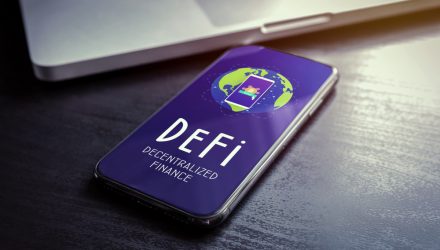Decentralized finance, or DeFi, systems warrant caution due to their lack of investor protections and potentially even their legality, stated Commodity Futures Trading Commissioner Dan M. Berkovitz in recent remarks.
DeFi: What It Is, Why It Presents Risks
DeFi is a catch-all term for a wide range of cryptoasset- or blockchain-based financial applications that do not rely on traditional intermediaries like exchanges, brokerage platforms, or banks.
DeFi applications are real-world use cases of blockchain technology, from simple transfers of monetary value to more complex records and smart contract transactions.
But because they exist outside the traditional financial sphere, DeFi blockchain transactions are largely unregulated, without any intermediary or oversight to transactions.
In his remarks, Berkovitz said that as of January 2021, roughly $20.5 billion cryptocurrency was invested in DeFi, in comparison to the $1 billion invested at the beginning of 2020.
Proponents of DeFi tout its ability to have direct control over investments, which do not need to go through an intermediary. Berkovitz argues, however, that, “intermediaries such as banks, exchanges, futures commission merchants, payment clearing facilities, and asset managers… have developed over the past two or three hundred years of modern banking and finance to reliably provide critical financial services to support the financial markets and the investing public.”
He goes on to describe the vital guidance that intermediaries supply to markets: providing information, analysis, and general advice to investors looking to gain access to financial markets, by supplying liquidity and supporting the stability of markets during hardships, and by giving safeguards for investments.
Perhaps most importantly, intermediaries can be held legally responsible when things go wrong.
The strength and security of the U.S. financial markets, Berkovitz explained, are rooted in the legal protections afforded investors when they invest in them. In DeFi, the intermediaries that absorb loss and mediate risks don’t exist.
“There is no intermediary to monitor markets for fraud and manipulation, prevent money laundering, safeguard deposited funds, ensure counterparty performance, or make customers whole when processes fail,” said Berkovitz.
Questioning the Legality of DeFi
Berkovitz even questioned the legality of DeFi markets and platforms.
“The CEA [note: Commodity Exchange Act] requires futures contracts to be traded on a designated contract market (DCM) licensed and regulated by the CFTC. The CEA also provides that it is unlawful for any person other than an eligible contract participant to enter into a swap unless the swap is entered into on, or subject to, the rules of a DCM,” he said.
Therefore, any facility that allows for trading or swaps must be registered as a DCM or swap execution facility (SEF).
Defi markets and platforms, as well as DeFi websites, aren’t registered as either a DCM or SEF, however.
Crypto assets are classified by regulators as commodities, meaning they too should be regulated by the CEA. Currently the CEA makes no exception for digital assets such as cryptocurrencies, blockchains, or smart contracts.
Berkovitz believes strongly that an unregulated DeFi market should not be allowed to compete in the same space as a regulated one. Previous experiences with “shadow banking” have proven that the regulated entity tends to absorb greater risk to try and generate higher yields in order to keep up with the unregulated counterpart.
According to Berkovitz, these sorts of issues “introduce significant risks to the financial system.”
For more news, information, and strategy, visit the Crypto Channel.

